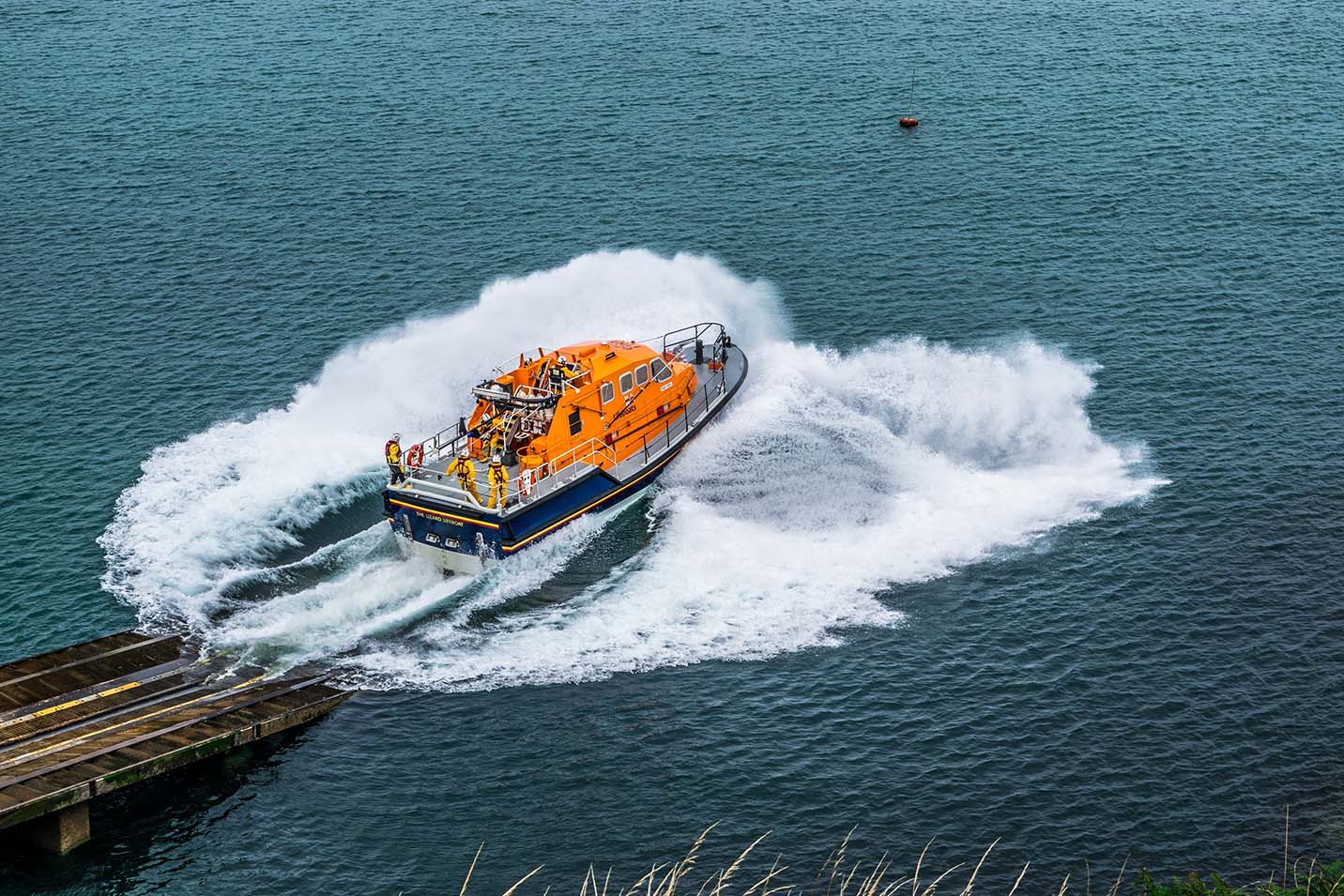Every day, the Royal National Lifeboat Institution (RNLI) takes to the seas around the coastline of Britain to rescue people who need their help - and save lives. Since 2007 they've been helped in this essential work by a grant from Lloyd's Register Foundation. Our funding is giving crews and volunteers the life-saving skills they need - and which any one of us might depend on.
The RNLI's volunteer crews provide an on-call search and rescue service for the UK and Ireland, 24 hours a day, 365 days a year. They need to be able to make the right split-second decisions in any rescue and to have the knowledge to deal with the unexpected, which comes from having the right training. In 2019, RNLI crews put to sea 8,944 times, helping 9,257 people and saving an estimated 219 lives.
Since 2007, Lloyd's Register Foundation funding had helped to train 3,852 RNLI crew in essential survival skills by the end of 2019. Once the current lockdown restrictions are eased, and it is safe to do so, this training will restart, with the aim of hitting 4,000 as soon as possible.


(Lloyd's Register Foundation photo selection from 2019)
The grants have been used to deliver a Crew Emergency Procedures (CEP) course at the RNLI's Sea Survival Centre. The course teaches vital skills such as:
- Essential sea survival theory and lifeboat skills, how to use and pack a lifejacket, rope work, practical sea survival, capsize training and being in a life raft
- Fire safety theory and how to use all-weather pyrotechnics, practical sessions on the correct use of flares, salvage pumps, fire extinguishers and throw bags.
Jayne George from the RNLI said:
"Most of our volunteer crew members do not come from a maritime background, making training fundamental. The sea is very unpredictable and, even with the best training, things can occasionally go wrong. The CEP course delivers high quality training to equip crew members with safety skills for their own survival should the worst happen, so that they can save lives at sea safely and effectively."
"The CEP course, generously funded by the Foundation, provides crew members with essential skills to stay safe when they risk their own lives to save others, often in bad weather conditions and/or the dark. Last year, 608 new crew members completed the CEP course. That’s 608 more brave volunteers/staff who have been trained to safely save lives at sea."

Crew members with a wide range of 'day jobs' have learned new safety skills on the course. Recent intakes have included a priest, a student, a publican, a lorry driver and a baker. Several of the 2019 CEP participants have already had the opportunity to put their training into action during rescues at their lifeboat stations. Mandie King, from Newhaven lifeboat station, took part in the November 2019 course and found it helped her overcome a fear of deep water.
“I went on a two-hour night-time search for a casualty recently. The sea was a bit choppy. I know if I’d had to, I could have pulled someone out of the water. I know too that if I’d needed to go overboard, I’d have been totally safe.”
Another successful trainee, Nicole Fleming, from Anstruther Lifeboat Station, said:
“It was such an enjoyable course. The instructors were very knowledgeable and also very encouraging. I feel very privileged to have been able to learn about such important emergency procedures in such an excellent environment.”
Gavin Roach, from Invergordon Lifeboat Station, enjoyed improving his safety skills alongside RNLI crew from around the UK: “I really enjoyed the opportunity to meet crew from other RNLI stations while learning essential safety and survival skills. The facilities at the College have to be seen to be believed – they’re absolutely fantastic, purpose-built to provide a safe but challenging training environment. Whether it’s a theory session in the classroom or enduring a storm in the wave pool at the sea survival centre, you feel you’re in excellent hands. Talking to volunteers from other boats gives you a real sense of your part in the bigger picture.”





